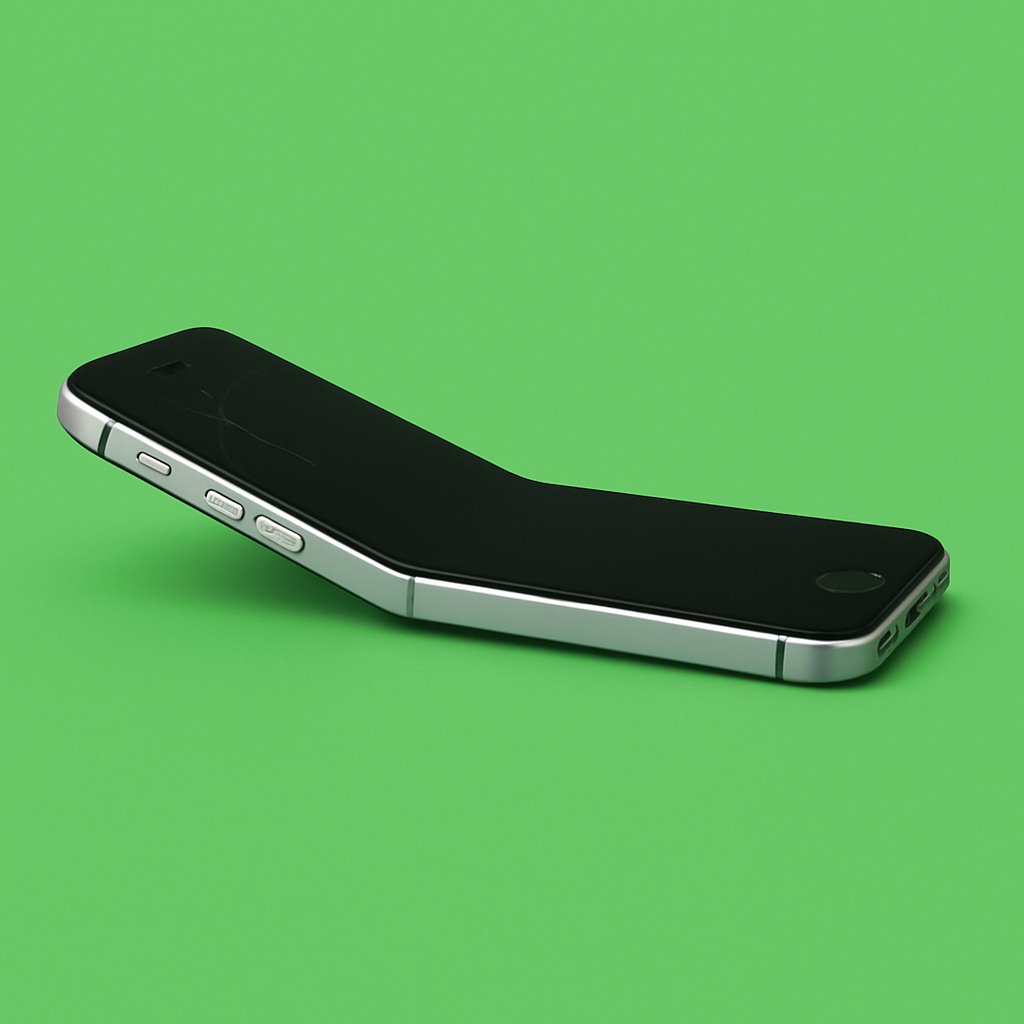Apple's design obsession is killing the company (and they know it)
It's impossible that they don't.
⏱️ Too lazy to read for 6 minutes? Here's the TLDR Summary:
Apple's rumored iPhone Air represents everything wrong with the company's current trajectory. While they obsess over making devices thinner, competitors are racing ahead in AI and innovation.
🔁 But it's not about the thickness; it's about a single notion: "When you stop innovating, you start dying."
🔍 They'll have to abandon their design-first mentality to reclaim their position as the world's most valuable company.
Take a look at Apple's market cap trajectory over the past 18 months. I've watched this company slide from first to third place in global valuations—and honestly, it was predictable.
The iPhone Air perfectly encapsulates Apple's fundamental problem. While Microsoft and NVIDIA are revolutionizing entire industries with AI, Apple is focusing on... making phones thinner? Seriously?
*VCR Rewind Sound*
The Steve Jobs mentality that built an empire
In 2010, everyone wanted to be "the next Apple." Jobs had created something magical—a closed ecosystem that prioritized user experience above everything else. That obsession with design and seamless integration built the most valuable company in history.
Their philosophy was simple: control every aspect of the user experience. From hardware to software, from retail stores to packaging—everything had to be perfect, beautiful, and intuitive.
This approach worked brilliantly for fifteen years.
The iPhone dominated smartphones.
The iPad created an entirely new product category.
Apple Watch became the world's best-selling smartwatch.
But here's what I learned from 15 years of consulting: what got you here won't get you there.
When design obsession becomes innovation paralysis
Let me share something from my investment practice. When I analyze companies, I look for signs of what I call "legacy thinking"—when successful companies become prisoners of their own success.
Apple has classic legacy thinking. They're still operating like it's 2012, believing that making products slightly thinner, slightly faster, or slightly more colorful constitutes innovation.
Meanwhile, here's what's actually happening in the market:
Microsoft's market cap hit $3.7 trillion, largely driven by their AI investments and partnerships
NVIDIA became the world's most valuable company by enabling the AI revolution
Google's Gemini and search integration are evolving rapidly
Even Meta is making serious AI progress with their LLaMA models
And Apple? They're allegedly working on making the iPhone thinner.
Apple Intelligence: too little, too late
I've tested Apple Intelligence. As someone who advises companies on technology adoption, I can tell you it's embarrassingly behind.
Ask Siri to help you plan a business trip, and you'll get basic calendar integration.
Ask ChatGPT the same question, and you'll get a comprehensive itinerary with budget estimates, weather considerations, and local business customs.
The difference isn't subtle—it's generational.
This isn't about being first to market anymore. Apple had time to observe, learn, and leapfrog the competition. Instead, they focused on animoji improvements and slightly better photo processing. The innovation plateau is real.
Let’s use a framework called "innovation velocity"—how quickly a company introduces truly game-changing features versus incremental improvements.
Apple's innovation velocity has been declining since 2018:
iPhone X introduced Face ID (genuine innovation)
iPhone 11-15 introduced... better cameras and faster processors (incremental)
iPhone Air will introduce... thinness (desperate)
Compare this to their competitors' recent innovations:
Samsung's Galaxy AI integration, Google's computational photography breakthroughs, and Microsoft's Copilot ecosystem integration all represent fundamental advances in user capability.
Apple's recent "innovations" feel like design exercises rather than technological breakthroughs.
Why the iPhone Air represents everything wrong
The iPhone Air isn't just misguided—it's actively harmful to Apple's future.
First, it signals to the market that Apple still thinks hardware aesthetics matter more than software capability. In 2024, when AI is reshaping entire industries, this is strategic malpractice.
Second, it shows they're still trying to solve 2010's problems. Nobody complained about iPhone thickness anymore. The iPhone 16 is already incredibly thin. Making it thinner won't improve anyone's life.
Third, it demonstrates resource misallocation. Every engineering hour spent on thinness is an hour not spent on AI, not spent on revolutionary features, not spent on the technologies that will define the next decade.
It’s time for drastic changes.
Revolutionize Siri completely. Don't improve it—replace it with something genuinely competitive with ChatGPT and Google Assistant.
Open the ecosystem strategically. Allow deeper third-party AI integration while maintaining Apple's quality standards.
Stop competing on specifications. Start competing on user capability and problem-solving power.
The market has already decided
The iPhone Air won't reverse this future. If anything, it will accelerate Apple's decline by confirming fears about the company's strategic direction.
Apple built an empire on design obsession, but empires fall when they stop adapting to new realities. The AI age demands different capabilities, different thinking, and different priorities.
A thin iPhone isn't going to cut it. Apple needs to choose: evolve or become irrelevant.
The clock is ticking, and their competitors aren't waiting.


